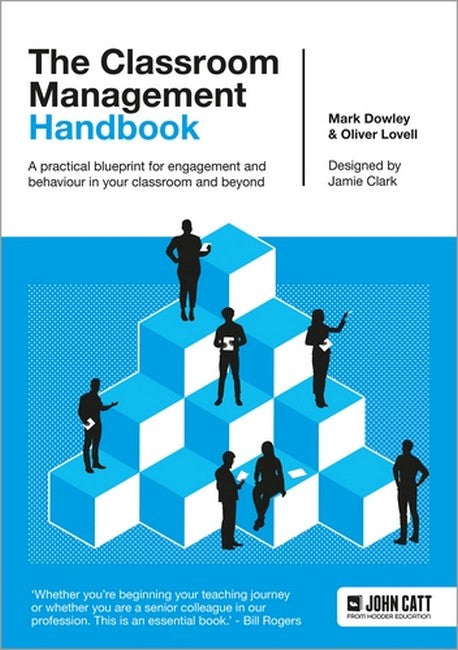Ollie Lovell is an author, podcaster, and educator based in Melbourne, Australia. He is best known as host of the hugely popular Education Research Reading Room Podcast. The Classroom Management Handbook is his third book, following the amazon best sellers Swellers Cognitive Load Theory in Action and Tools for Teachers. In all of his work, Ollie is laser focussed on clarifying, codifying, and communicating the best that education research and practice has to offer time-poor teachers. When he isnt writing education books he enjoys bouldering, surfing, and spending time with his wife Holly and daughter Ada. Dr. Mark Dowley is Associate Head - Staff Development at the Crowther Centre for Applied Educational Research and Adjunct Lecturer at LaTrobe University. Mark has received multiple teaching awards and consults internationally on culture, belonging and behaviour. He completed his Doctor of Education and Masters in Education Policy (International) at the University of Melbourne. When he isnt working he enjoys being outdoors; running, swimming, camping and spending time with his family.
Request Academic Copy
Please copy the ISBN for submitting review copy form
Description
Contents
Acknowledgements
Foreword
Introduction
How to use this book
Part 1: Ten principles for effective classroom management
Principle 1: Cracking behaviour is cracking a code
Principle 2: The best classroom managers have the best habits
Principle 3: Beginning with high expectations provides more flexibility
Principle 4: Master your own behaviour to influence others
Principle 5: Behaviour is a curriculum, treat it as such
Principle 6: It’s what you say and how you say it
Principle 7: Success is the greatest motivator
Principle 8: Seek out examples of excellence
Principle 9: Students need to know that they belong and you believe in them
Principle 10: Bank positivity
Part 2: Scripts
Tools, routines and scripts
Routines for the first lesson with a new class
Routine 1: Entry routine
Routine 2: Defuse debate
Routine 3: Teacher self-regulation
Routine 4: Gaining attention
Routine 5: Tight transitions
Routine 6: After class conversation
Routine 7: Effective instruction (I do)
Routine 8: We do
Routine 9: Monitoring behaviour during independent work
Routine 10: Moving a student
Routine 11: Complex activities
Routine 12: Maintaining engagement to the end of the lesson
Routine 13: Asking a student to pick up rubbish
Routine 14: Addressing a uniform infraction
Routine 15: Addressing rough or inappropriate play
Routine 16: Clearing the yard
Routine 17: Students using technology in an unproductive way
Routine 18: System level support
Conclusion
Appendices
Appendix 1: Glossary of tools
Appendix 2: Further reading

